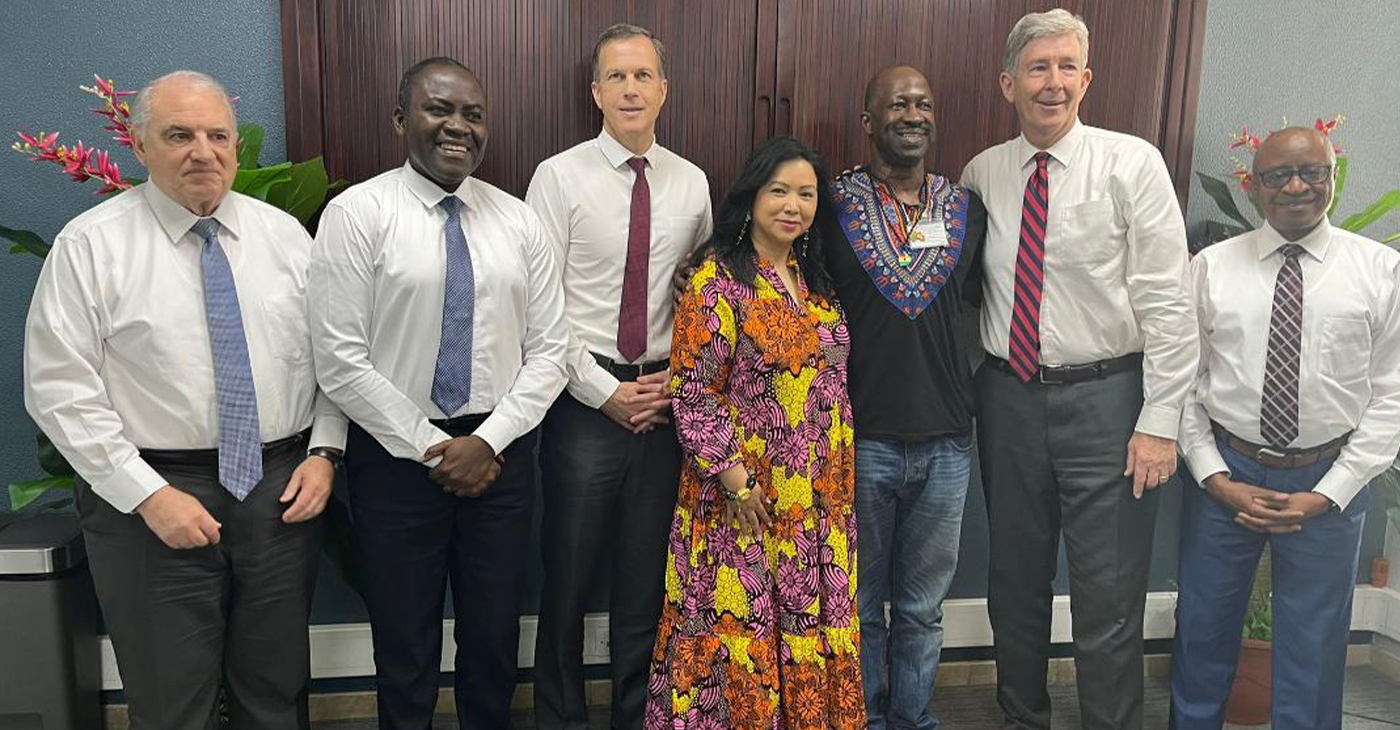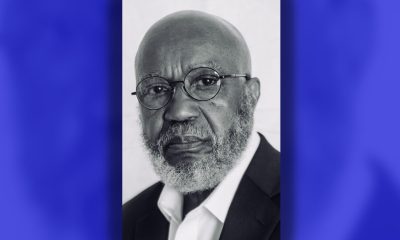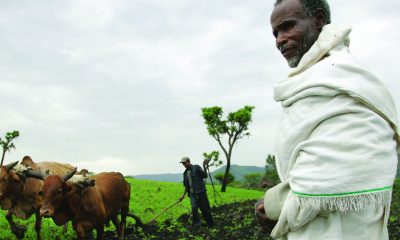World
Frustration with Latin America’s Left on the Rise

In this Wednesday, Jan. 21, 2015, file photo, Mexico’s President Enrique Pena Nieto attends a ceremony promoting housing for low income families, single mothers and members of the armed forces at Los Pinos presidential residence in Mexico City. Pena Nieto has also seen his pro-business agenda derailed by allegations of corruption and the disappearance of 43 students after they were handed over by police to local drug traffickers. (AP Photo/Marco Ugarte, File)
JOSHUA GOODMAN, Associated Press
CARACAS, Venezuela (AP) — Venezuela’s socialist government is struggling to put food on the shelves amid runaway inflation. Brazil’s president is facing calls for impeachment. And even Cuba’s communist government, an iconic touchstone for generations of leftists, is embracing closer ties with the U.S.
Whether it’s because of corruption scandals or stagnant growth, the popularity of the crop of leftist Latin American governments that have been running the region since the start of the millennium appears to be waning. Voters who embraced what became known as the pink tide that swept away the pro-Washington, free-market policies dominant in the 1990s are increasingly turning against the populist firebrands they once rallied behind.
Across the region, polling numbers are tanking and street protests are on the rise.
Triggering the growing disenchantment are some serious economic headwinds. Most leaders came into power just as China’s economy was soaring and with it demand for South America’s abundant natural resources. Now that the world’s second-largest economy is cooling, the commodities boom that allowed governments to spread the wealth and endear themselves to the poor is ending.
“It’s not easy to govern in Latin America right now,” said Raul L. Madrid, a University of Texas at Austin professor and co-editor of a 2010 book on leftist governments in the region. “Many of these governments rode frustration with high levels of inequality and corruption to power. But you can’t rail against the establishment as effectively as you once did when you are the establishment at this point.”
No leader has been harder hit than Venezuelan President Nicolas Maduro.
When his mentor, the late Hugo Chavez, took power in 1999, the international price of oil — which funds the bulk of spending in the oil-rich nation — was under $10 a barrel, and its rise to $100 created a boom that lasted several years. But prices have plunged by nearly half since July, exacerbating shortages and the world’s fastest inflation as the government tight-fists dollars needed to pay down debt and import basic goods.
Maduro’s approval ratings have tumbled to 28 percent, near the lowest in 16 years of socialist rule, and while there’s no sign the sometimes violent street protests that overwhelmed the country a year ago will return anytime soon, polls indicate that the opposition will coast to victory in legislative elections expected to take place by year end.
Perhaps sensing the troubles of his closest ally, Cuban President Raul Castro in December agreed to talks with the U.S. aimed at normalizing relations, a move expected to fuel growth in the communist-run economy. Currently, Venezuela provides Cuba with the bulk of the oil it consumes at subsidized prices.
A string of headline-grabbing corruption scandals are also exposing the ethical breaches that befall many parties after more than a decade in power.
In Chile, the region’s best-managed economy but one highly dependent on copper exports, President Michelle Bachelet reshuffled her Cabinet recently to stem the fallout from revelations that her son used his influence to secure a favorable loan. It’s one of the scandals that have prompted widespread outrage at the sway of money over politics, both for her Socialist Party and the opposition.
When Bachelet, who served as president previously, left office for the first time in 2010 she enjoyed a whopping 84 percent approval rating. But now support has plunged to around 30 percent, a record low, and analysts say an ambitious agenda including a proposed constitutional reform and overhaul of the university education system are at risk.
“When the economy is growing nobody pays attention to corruption,” said Patricio Navia, a political scientist who teaches at New York University and Chile’s Diego Portales University. “But when the pie stops growing, and voters see others profiting, they start to ask ‘where’s my piece?'”
The first major test of the shifting public mood will take place in October, when Argentines head to the polls in the region’s only major presidential election this year.
President Cristina Fernandez’s Peronist party is facing a tough battle to elect her successor as 30 percent inflation and a restriction on dollar purchases erode support. The president’s credibility has also been tainted by her sometimes erratic response to the shocking death of prosecutor Alberto Nisman as he was investigating an alleged cover-up deal between her government and Iran to shield the Islamic Republic from prosecution in the 1994 bombing of Jewish center. Nisman’s accusation was recently dismissed by Argentina’s top Cassation Court.
To be sure, it’s not just leftists. Incumbents across the ideological spectrum are facing the heat.
In Colombia, Harvard University-educated President Juan Manuel Santos’ approval rating is at the same level as Maduro’s as frustration builds over the slow pace of peace talks with leftist rebels. Mexico’s Enrique Pena Nieto has also seen his pro-business agenda derailed by allegations of corruption and the disappearance of 43 students after they were handed over by police to local drug traffickers.
The growing frustration with the left could prompt several leaders to moderate their policies and pivot toward the center.
Already in Brazil, the region’s biggest economy, President Dilma Rousseff is starting to roll out a more conservative message of austerity, including cuts in unemployment and welfare benefits, to tame a record budget deficit widened by the biggest economic slowdown in 25 years.
With approval rating in the low teens just five months into her second term, Rousseff’s also struggling to win back the public trust amid Brazil’s biggest corruption investigation, an inquiry into a massive kickback scheme at state-run oil company Petrobras. Rousseff served as chairwoman of Petrobras’ board as the graft took place, though there has been no evidence to show wrongdoing on her part.
Navia says moderate governments that are more flexible will have an easier time attracting foreign investment and boosting savings while those pursuing a more transformative, ideology-driven agenda, like Argentina and Venezuela, will face a rougher time making adjustments.
Still, it may be too early to write the left’s political obituary, according to Madrid. While fatigue with the left is on the rise, many of the region’s charismatic leaders have a connection with voters that their right-wing opponents, who so far have failed to present an alternative vision of the future, are hard-pressed to replicate, he says.
Mario Toer, a professor of Latin American studies at the University of Buenos Aires, says many of the scandals are being hyped by opposition-leaning media and that corruption, long rampant in Latin America, has actually been on the decline in the past decade. However he recognizes that the left is at a crossroads.
“It is something inherent to the process,” says Toer. “But the global crisis and media offensive add a dimension that goes beyond the real difficulties governments are facing.”
___
AP writers Peter Prengaman from Buenos Aires and Bradley Brooks from Rio de Janeiro contributed to this report.
___
Follow Goodman on Twitter: https://twitter.com/apjoshgoodman
Copyright 2015 The Associated Press. All rights reserved. This material may not be published, broadcast, rewritten or redistributed.
Activism
Oakland Ambassadors Strengthen Ties and Aid Efforts in Ghana
Oakland natives and esteemed members of the African American Sports and Entertainment Group (AASEG), Jonathan P. Jones and Dr. Maritony Efua Jones, recently embarked on a significant journey to Ghana as guests of the World Martial Authority Ghana. This trip signifies a crucial opportunity to bolster partnerships, explore new avenues of collaboration, and contribute to impactful initiatives in Ghana.

By Post Staff
Oakland natives and esteemed members of the African American Sports and Entertainment Group (AASEG), Jonathan P. Jones and Dr. Maritony Efua Jones, recently embarked on a significant journey to Ghana as guests of the World Martial Authority Ghana.
This trip signifies a crucial opportunity to bolster partnerships, explore new avenues of collaboration, and contribute to impactful initiatives in Ghana.
Upon their arrival at Katota Airport in Accra, Ghana, the Joneses were warmly received by His Royal Majesty Okatakyie Asafo Boakye III, the distinguished king of Sanzule Kingdom in the Eastern Nzema, and Etse Nyamedi of World Martial Authority, Ghana.
Nyamedi accompanied the Joneses to the city of Mepe, which had recently experienced flooding, to assess damages and engage with local leaders, elders, and youth regarding the city’s urgent needs after major floods last fall.
Key concerns and priorities identified by the community include comprehensive flood mitigation measures, agricultural support, housing initiatives, educational enhancements, improved healthcare access, and the development of communal recreational spaces.
The Joneses were also graciously invited to meet with leaders of The Church of Jesus Christ of Latter-day Saints at their headquarters in Accra. This meeting provided insights into ongoing humanitarian efforts in Ghana and explored avenues for collaboration to further assist Ghanaian communities.
The LDS leaders shared their prompt response to the recent flood, demonstrating their commitment to humanitarian aid by dispatching substantial supplies including medical provisions, sanitation items, blankets, and food to assist flood victims just four days after the disaster.
Additionally, Boakye extended a special invitation to the Joneses to his palace, where they were pleasantly surprised with a heartfelt recognition ceremony. Maritony Jones was honored as the Queen Mother of the Sanzule Kingdom in acknowledgment of her dedicated work, while Jonathan Jones was lauded and welcomed as the ambassador of the Sanzule Kingdom, symbolizing a meaningful homecoming to their ancestral land.
The visit not only strengthens ties between Oakland and Ghana but also underscores the collaborative spirit and commitment to meaningful progress and humanitarian endeavors shared by all involved parties.
Barbara Lee
Congresswoman Barbara Lee Issues Statement on Deaths of Humanitarian Aid Volunteers in Gaza
On April 2, a day after an Israeli airstrike erroneously killed seven employees of World Central Kitchen (WCK), a humanitarian organization delivering aid in the Gaza Strip, a statement was release by Rep. Barbara Lee (D-CA-12). “This is a devastating and avoidable tragedy. My prayers go to the families and loved ones of the selfless members of the World Central Kitchen team whose lives were lost,” said Lee.

By California Black Media
On April 2, a day after an Israeli airstrike erroneously killed seven employees of World Central Kitchen (WCK), a humanitarian organization delivering aid in the Gaza Strip, a statement was release by Rep. Barbara Lee (D-CA-12).
“This is a devastating and avoidable tragedy. My prayers go to the families and loved ones of the selfless members of the World Central Kitchen team whose lives were lost,” said Lee.
The same day, it was confirmed by the organization that the humanitarian aid volunteers were killed in a strike carried out by Israel Defense Forces (IDF). Prior to the incident, members of the team had been travelling in two armored vehicles marked with the WCF logo and they had been coordinating their movements with the IDF. The group had successfully delivered 10 tons of humanitarian food in a deconflicted zone when its convoy was struck.
“This is not only an attack against WCK. This is an attack on humanitarian organizations showing up in the direst situations where food is being used as a weapon of war. This is unforgivable,” said Erin Gore, chief executive officer of World Central Kitchen.
The seven victims included a U.S. citizen as well as others from Australia, Poland, the United Kingdom, Canada, and Palestine.
Lee has been a vocal advocate for a ceasefire in Gaza and has supported actions by President Joe Biden to airdrop humanitarian aid in the area.
“Far too many civilians have lost their lives as a result of Benjamin Netanyahu’s reprehensible military offensive. The U.S. must join with our allies and demand an immediate, permanent ceasefire – it’s long overdue,” Lee said.
Bay Area
Nigerian Bank Chief Killed in Helicopter Crash on Way to Superbowl XVIII
According to the San Bernardino County Sheriff’s Dept., the crash occurred near Nipton, on the edge of the Mojave Desert Preserve. The poor weather conditions — rain, wind and snow showers—may have contributed to the accident, although the investigation is not complete. All six aboard were killed. Herbert Wigwe, 57, founded Access Bank in 1989, and it became the country’s largest competitor, Diamond Bank in 2018.

By Post Staff
The co-founder of one of Nigeria’s largest banks died with his wife, son and three others when the helicopter transporting them from Palm Springs, Ca., to Boulder City, Nev. to attend the fifty-eighth SuperBowl at the stadium outside Las Vegas crashed on Feb. 9.
According to the San Bernardino County Sheriff’s Dept., the crash occurred near Nipton, on the edge of the Mojave Desert Preserve. The poor weather conditions — rain, wind and snow showers—may have contributed to the accident, although the investigation is not complete. All six aboard were killed
Herbert Wigwe, 57, founded Access Bank in 1989, and it became the country’s largest competitor, Diamond Bank in 2018.
More recently, Wigwe was planning to open a banking service in Asia this year after making successful expansions to other parts of Africa, including South Africa, Kenya, and Botswana.
Nigerian President Bola Tinubu described Wigwe’s death as an ‘overwhelming tragedy.”
Oakland resident and Nigerian immigrant Kayode Gbadebo agrees with Tinubu. He met Wigwe in Nigeria but crossed paths with him in London in 2006. Wigwe, he said, “took risks.”
He was young and people thought he couldn’t do what he intended, which was not so much about money but community.
“He was more like Jesus in washing the feet of the poor– Wigwe was culturizing community,” Gbadebo said.
“There will never be another like him. This is a deep, deep loss” and he hopes everyone will eventually “be comforted.”
He was also disappointed that a replacement has already been named even before Wigwe is buried. “It is not reasonable. You don’t want a vacuum, but it’s” not fair to the family, Gbadebo observed.
Wigwe had also been working to solve the migration issues from African countries, believing that “investing in higher education was key to controlling mass migration, which “is destabilising countries across the world,” BBC News reported.
“We need to take a holistic approach to address global migration, starting with our traditional framework for international development,” Wigwe wrote.
To that end, according to BBC News, Wigwe was preparing to open Wigwe University in Niger, where he was from.
“The best place to limit migration is not in the middle of the Mediterranean or the English Channel or the Rio Grande. It is in the home countries that so many migrants are so desperate to leave,” he wrote, saying his university was an opportunity for him “to give back to society.”
Besides Wigwe and his wife, Chizoba Nwuba Wigwe, and one son, two crew members and Bimbo Ogunbanjo, former group chairman of the Nigerian Exchange Group Plc, were also killed in the crash.
According to Wikipedia, three other children survive Wigwe.
In his statement reported in People magazine, Tinubu described Wigwe as “a distinguished banker, humanitarian, and entrepreneur.”
“I pray for the peaceful repose of the departed and ask God Almighty to comfort the multitude of Nigerians who are grieving and the families of the deceased at this deeply agonizing moment,” the president said.
He added, “Their passing is an overwhelming tragedy that is shocking beyond comprehension.”
Besides feeling the tremendous loss, Gbadebo fears the disorder and greed that will follow. “It’s a mess,” he said.
People magazine, BBC News and Wikipedia were the sources for this report.
-

 Community3 weeks ago
Community3 weeks agoFinancial Assistance Bill for Descendants of Enslaved Persons to Help Them Purchase, Own, or Maintain a Home
-

 Business3 weeks ago
Business3 weeks agoV.P. Kamala Harris: Americans With Criminal Records Will Soon Be Eligible for SBA Loans
-

 Activism4 weeks ago
Activism4 weeks agoOakland Post: Week of April 10 – 16, 2024
-

 Community3 weeks ago
Community3 weeks agoAG Bonta Says Oakland School Leaders Should Comply with State Laws to Avoid ‘Disparate Harm’ When Closing or Merging Schools
-

 Activism2 weeks ago
Activism2 weeks agoOakland Post: Week of April 24 – 30, 2024
-

 City Government3 days ago
City Government3 days agoCourt Throws Out Law That Allowed Californians to Build Duplexes, Triplexes and RDUs on Their Properties
-

 Community2 weeks ago
Community2 weeks agoRichmond Nonprofit Helps Ex-Felons Get Back on Their Feet
-

 Community2 weeks ago
Community2 weeks agoOakland WNBA Player to be Inducted Into Hall of Fame
























































